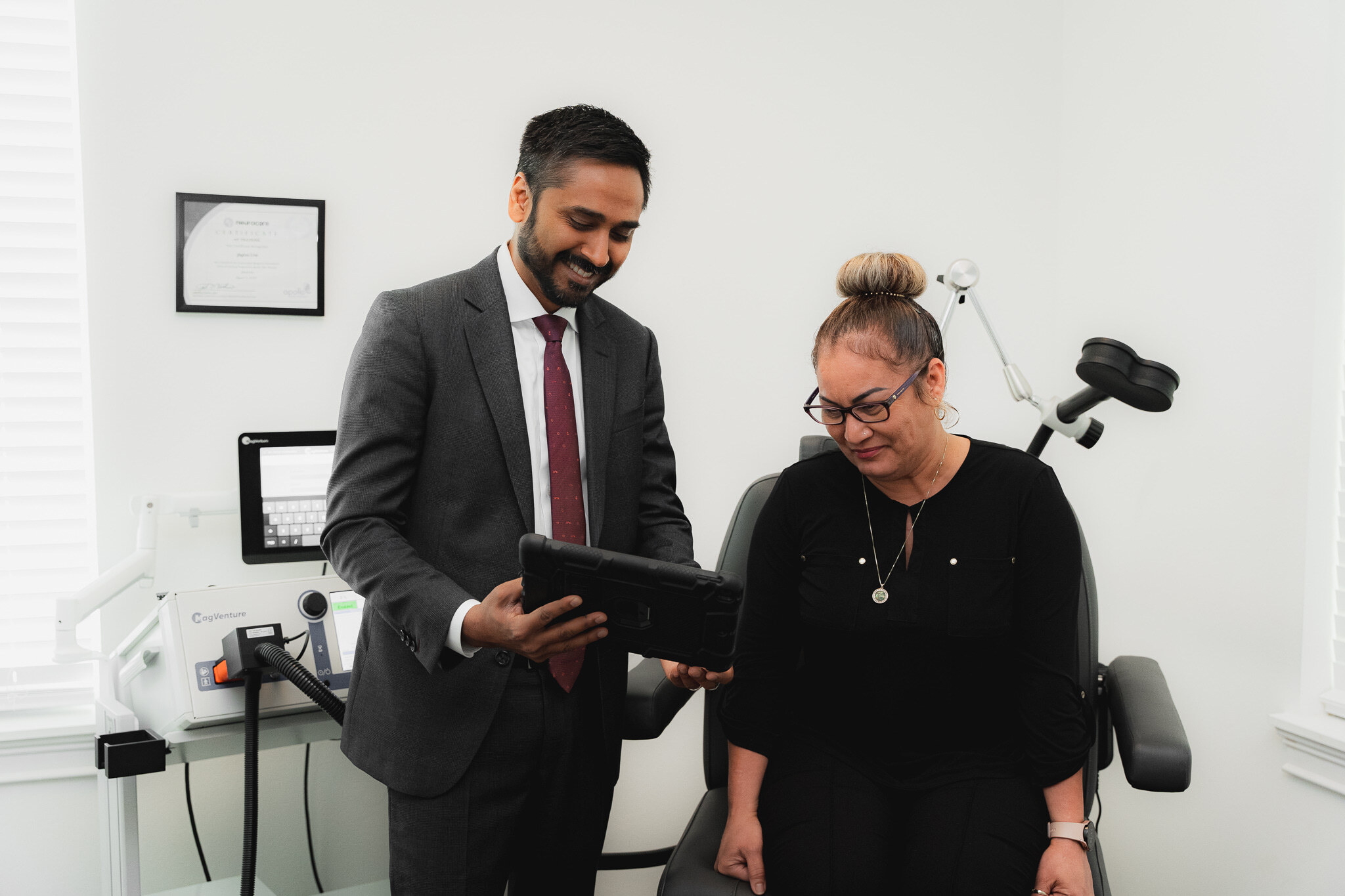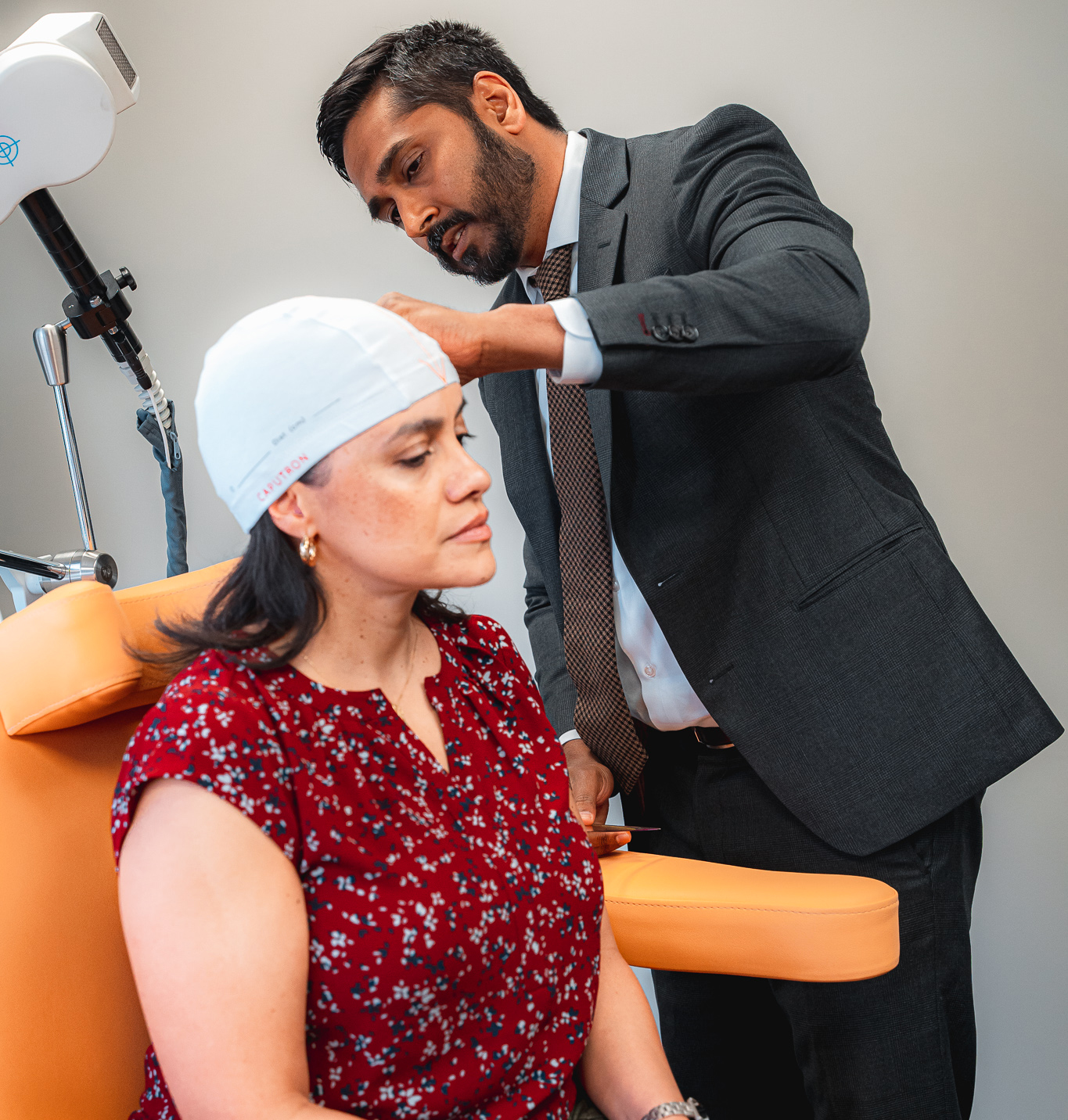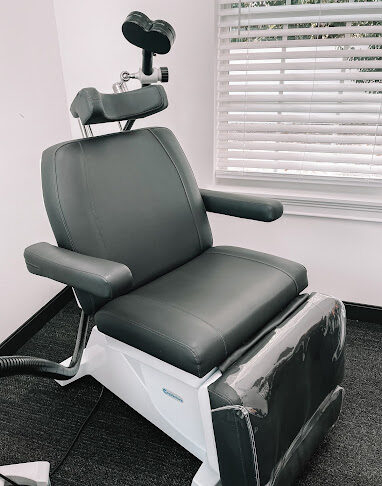
Transcranial Magnetic Stimulation (TMS) technology received FDA approval in 2008 to treat depression in patients whose symptoms are non-responsive to antidepressant medications. Historically, depression has been difficult to treat in about half of all diagnosed individuals, marking TMS treatment as an extremely important development in the field of psychiatry.
Let us imagine a new patient comes to our offices to be treated for depression, and we decide to start by prescribing an antidepressant. Statistically, there is about a 35% chance that the depression will go away completely. If the first medication does not work and we prescribe a second, the chances of full recovery drop to around 30%. In other words, roughly half of all patients diagnosed with depression will respond to one of their first two antidepressants.
If there is no improvement in symptoms after two medication trials, the chance of recovery with a third trial drops to about 15%, and by the fourth trial, only around 10%. Each new medication trial moving forward offers roughly the same 10% chance of recovery. There are several strategies available to enhance these odds, such as combining medications. While this can be effective, it often increases a patient’s chances of experiencing side effects.
This is where TMS Therapy in Tampa, St. Petersburg, and Brandon comes in. Clinical trials have shown that TMS can bring depression into remission about 40% of the time. Even more encouraging, around 60% of patients experience at least a 50% improvement in their symptoms. For patients who have already tried several medications, this kind of result is remarkable; it is the sort of response we rarely see in clinical medicine. If you are interested in learning more about TMS therapy offered at our practice, reach out and schedule an appointment with our compassionate psychiatrists today.


In simple terms, TMS is a medical device that uses electromagnetic pulses to activate certain neurons in the brain. When treating depression, the TMS coil is positioned over a very specific region of the brain, known as the left dorsolateral prefrontal cortex.
Studies show that in people with depression, this part of the brain tends to be underactive. The DLPFC is closely connected to deeper brain structures that make up the limbic system, which is responsible for emotion. In depressed patients, those emotional centers are often overactive. TMS Therapy offered at our Tampa, St. Petersburg, and Brandon locations helps restore balance by increasing activity in the frontal lobes and reducing excessive limbic activity. In other words, TMS helps “reset” the brain circuits involved in mood regulation.

There are many factors that lead to depression, such as genetics, chronic stress, trauma, and biological changes in the brain. TMS corrects abnormal brain firing patterns that are part of the problem, but to truly sustain recovery, most people benefit from a comprehensive approach to treatment. Often, this means using TMS alongside therapy, stress reduction techniques, and sometimes medication.
At The Neuropsychiatry & TMS Group in Tampa, St. Petersburg, and Brandon, we tailor each TMS therapy plan to the individual. TMS helps normalize brain function, but the bigger goal is to support long-term mental wellness by addressing all contributing factors involved in depression.
Some important developments in TMS technology have expanded what is possible for our patients in Tampa, St. Petersburg, and Brandon. MagVenture TMS Therapy is now FDA-cleared for adolescents aged 15–21 as an adjunct treatment for Major Depressive Disorder (MDD). This gives younger patients a non-invasive, drug-free alternative for treating depression.
In addition, the Apollo TMS Therapy system recently received FDA clearance for treating Obsessive-Compulsive Disorder (OCD) in adults. With these latest developments, TMS therapy is available to a wider range of patients looking to improve their mental health and well-being. To learn how these advancements may apply to you, contact our dedicated providers at The Neuropsychiatry & TMS Group today.
We are proud to offer TMS therapy in Tampa, St. Petersburg, and Brandon. This innovative treatment now provides families and young patients with a new, science-backed option for managing depression safely and effectively.
As TMS continues to evolve, so do the ways we can personalize treatment, whether you are an adult with treatment-resistant depression, a young person exploring new therapy options, or someone struggling to manage symptoms of OCD. Our team is here to help you explore what is possible with TMS therapy, so contact us today.
